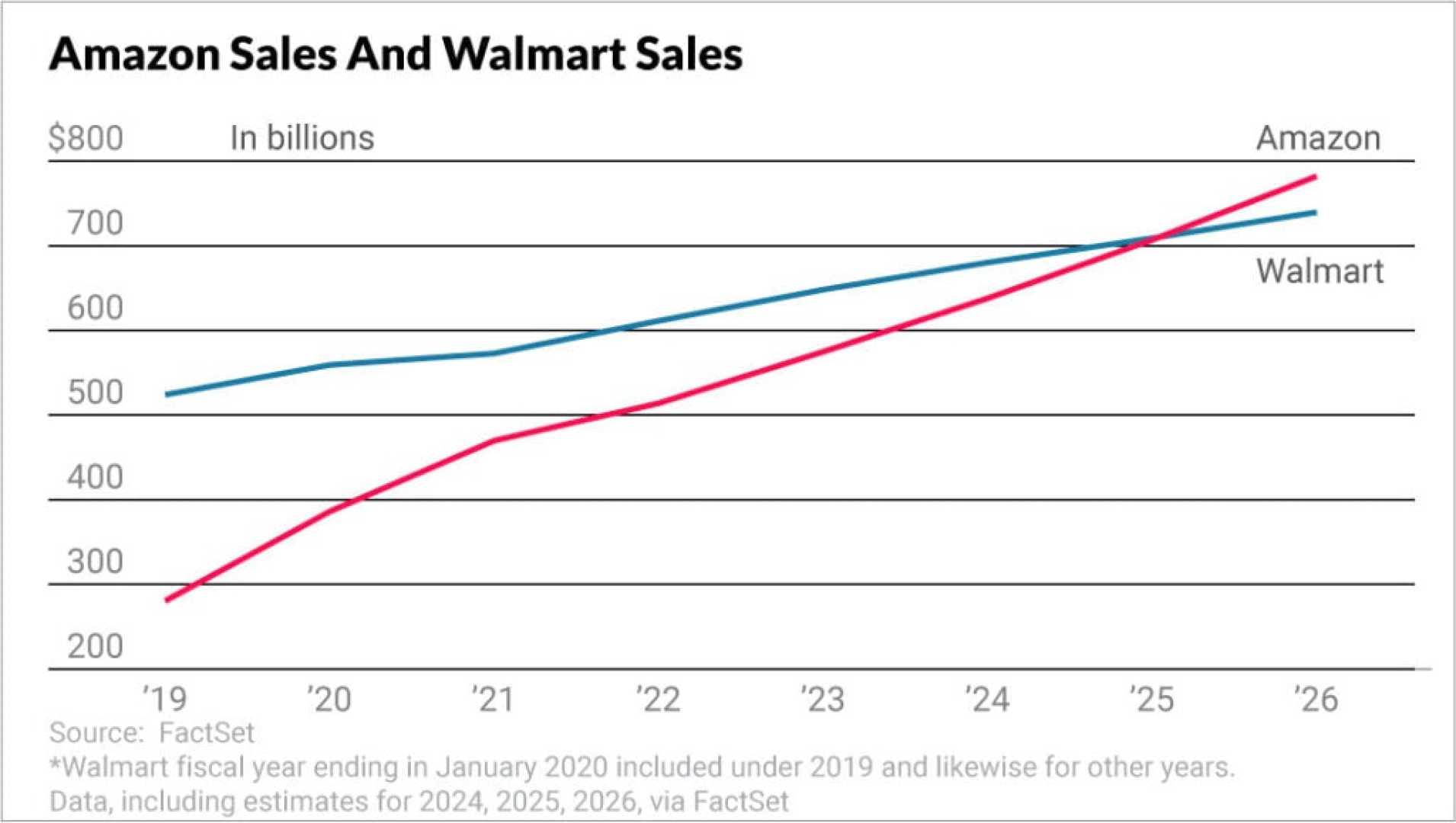Business
Retail Giants Face Turbulent Times Amid Tariff Uncertainty

NEW YORK, April 2, 2025 — Major retailers Amazon, Walmart, and Target experienced significant stock declines over the past month as the market reacts to potential tariff changes. These mega-retailers saw their stocks fall over 10% in March, with only Target feeling the brunt of the decline at 16%. As investors brace for President Donald Trump’s complete tariff plan, concerns about the potential fallout have left the retail sector on edge.
The S&P 500 index dropped 5% last month, and analysts attribute this downturn to the uncertainty spurred by impending tariff changes. Amazon, which lost 10.4%, and Walmart, down 11%, both have extensive international operations that could be impacted by new tariffs, while Target, lacking significant international sales, has to navigate challenges through its imports.
David Rawlinson, CEO of QVC Group, emphasized the increasing volatility in the market, stating, “Tariffs could further complicate the already challenging retail environment, especially for companies dependent on discretionary spending.” Unlike some of its competitors, Target has a more limited focus on groceries and has suffered as consumer spending patterns continue to shift.
In its recently concluded fiscal year 2025, Target reported just a 1% increase in comparable sales, while earnings per share (EPS) plummeted by 19%. Target’s management has initiated a strategic overhaul focusing on enhancing its product ranges and omnichannel shopping options to foster growth, but external factors pose continued risks.
Conversely, Amazon’s diversified business model, including its cloud computing arm Amazon Web Services (AWS), has shown resilience. AWS sales surged by 19% last year, supporting an overall company sales growth of 11%. An analyst at MarketBeat noted, “Amazon’s diverse portfolio, especially in tech, could cushion it against tariff shocks.”
Walmart, the largest U.S. company by sales, reported a sales increase of 5.1% for the fiscal year ending January 31, 2025, with an EPS rise of 13%. Walmart’s significant e-commerce expansion has capitalized on its extensive store network, establishing itself as a supply and delivery hub across the U.S.
Market analysts are divided on the potential for recovery among these stocks. “Buy Target if you’re willing to take on higher risk, but Amazon and Walmart offer safer bets for conservative investors,” advised a financial analyst from CNBC.
Despite their current stock price declines, experts project that all three retailers are well-positioned to absorb the impacts of tariff changes. The long-term outlook remains promising, with these firms likely to rebound once the market stabilizes. Investors should brace themselves for potential short-term disruptions as the economy continues to navigate these uncertainties.
As John Mackey, former CEO of Whole Foods Market and a current board member of The Motley Fool, pointed out, “Patience will be crucial for investors looking to capitalize on these retail giants.” Investors are warned, however, against expecting immediate gains amid ongoing economic volatility.












